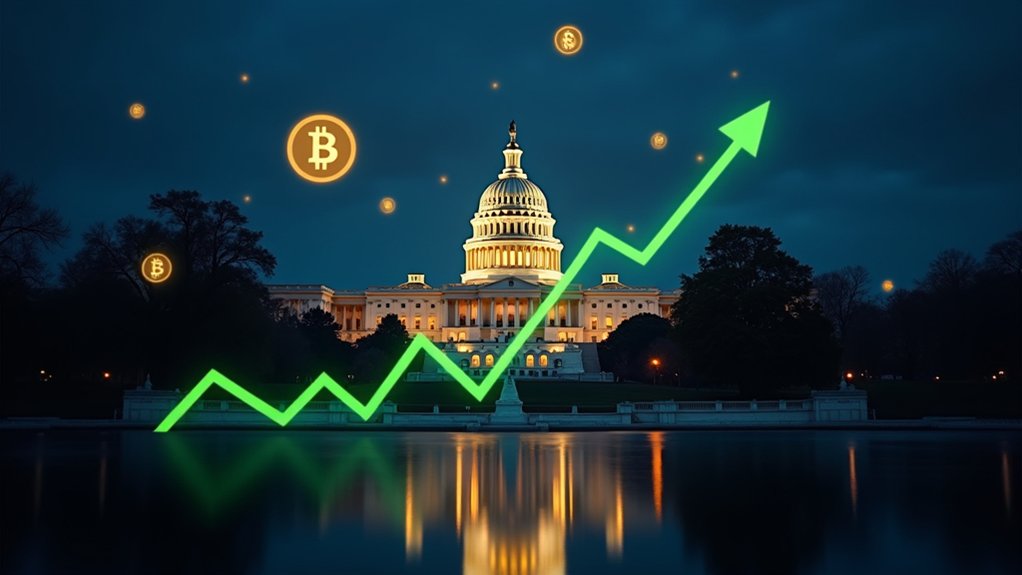Washington shocked the financial world yesterday with a bold move that could reshape America’s economic future. Senator Cynthia Lummis reintroduced the Bitcoin Act, with Representative Nick Begich launching a companion bill in the House. The legislation aims to acquire a staggering 1 million Bitcoin over five years. Yeah, you read that right. One million.
A trillion-dollar crypto gamble that could either save America’s economy or become Washington’s most spectacular financial blunder.
The plan has attracted bipartisan support with multiple co-sponsors already on board. It builds directly on Trump’s executive order establishing a strategic Bitcoin reserve. And here’s the kicker—not a penny of taxpayer money will be used.
So how will Uncle Sam pay for all this crypto? The funding mechanism is pretty clever. Federal Reserve remittances, gold revaluations, and the Exchange Stabilization Fund will foot the bill. Budget neutral, they claim. We’ll see about that.
The rationale behind this massive accumulation sounds like something from a finance thriller—strengthen national security, provide economic stability, and counter the weakening dollar. Oh, and offset that pesky $34 trillion national debt. Good luck with that one.
Storage plans include a decentralized network of secure facilities with a proof-of-reserve system for transparency. Public audits will be supervised by the Comptroller General, with a mandatory 20-year holding period. The bill specifically includes proof-of-reserve requirement for all government-held Bitcoin assets. No panic selling allowed—restrictions prevent dumping more than 10% in any two-year period.
The purchase represents about 5% of Bitcoin’s total supply, valued around $80 billion currently. Analysts expect prices to surge if the bill passes. A global race for Bitcoin could follow. Talk about FOMO on a geopolitical scale.
Critics point to Bitcoin’s notorious volatility and potential inflationary effects. Some question whether the government should be involved in crypto at all. Fair points.
Internationally, the move positions the US as a leader in the digital asset economy and could trigger significant shifts in global financial power dynamics. The legislation represents a stark contrast to how the government has historically approached tokenized real assets in the cryptocurrency space. Bitcoin as a “sovereignty asset”? That’s new. The initiative represents a fundamental shift from viewing Bitcoin as merely speculative to recognizing it as a strategic financial asset. Traditional reserve currencies better watch their backs.





